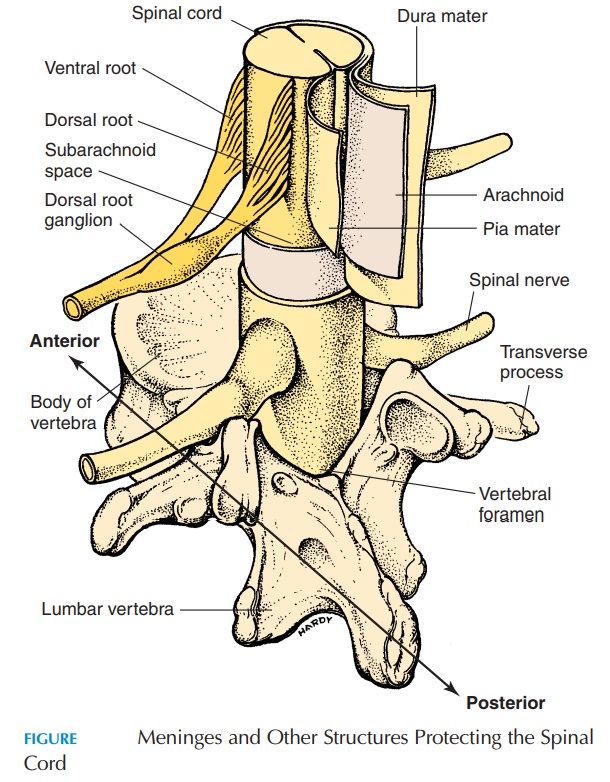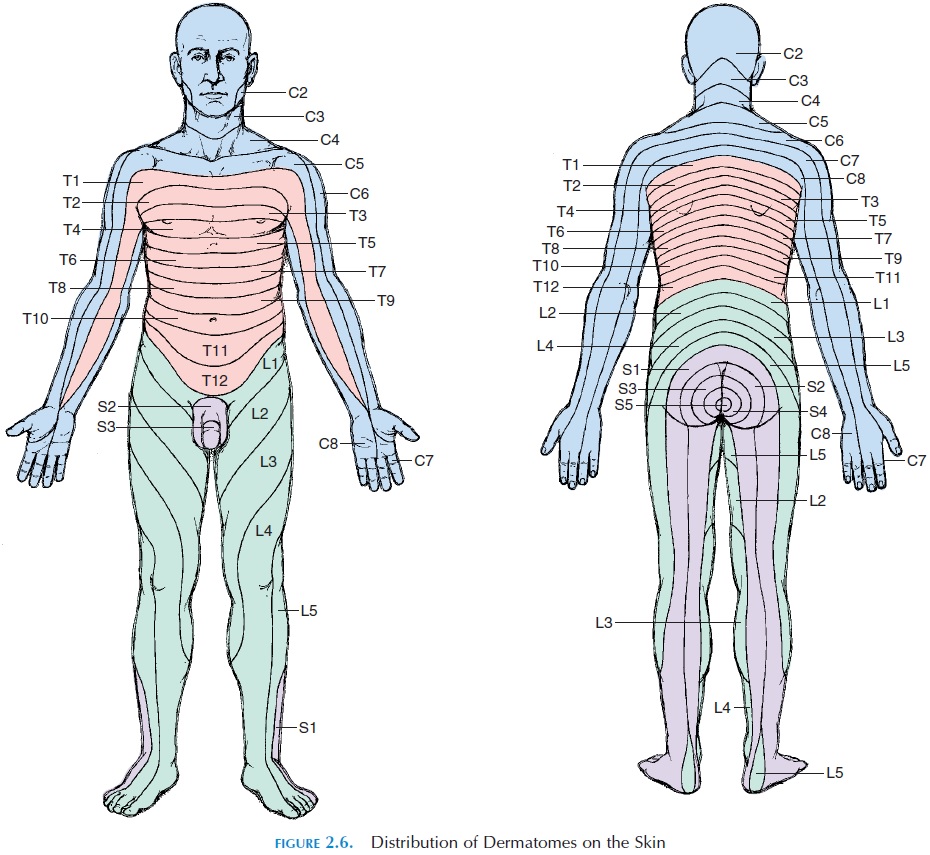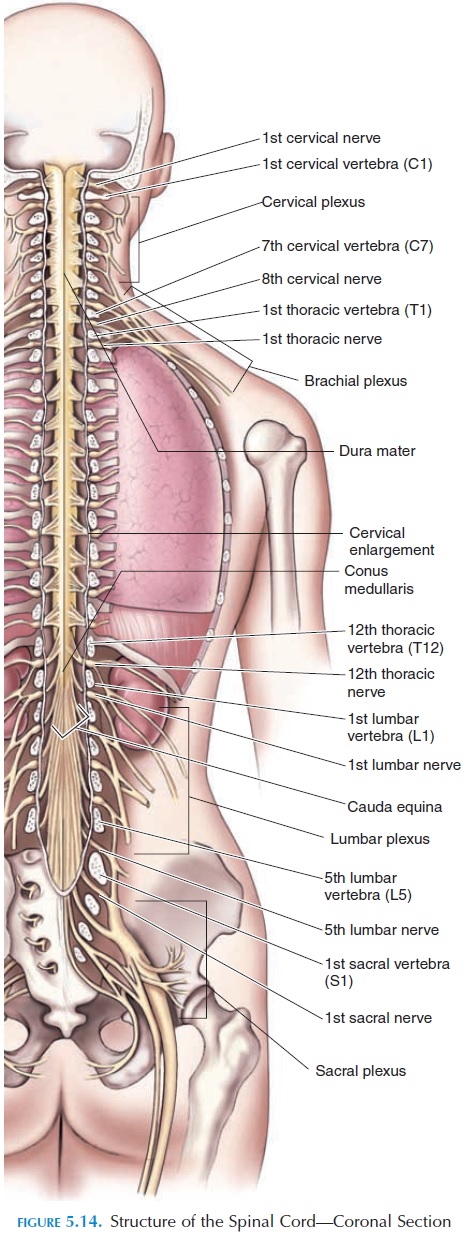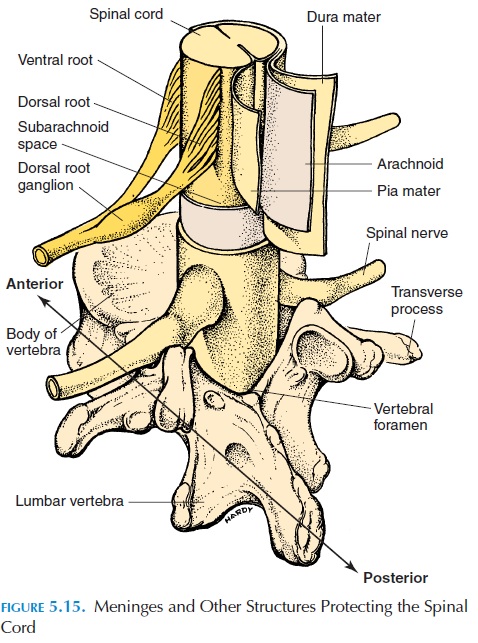Chapter: The Massage Connection ANATOMY AND PHYSIOLOGY : Nervous System
The Spinal Cord, Spinal nerves, and Dermatomes

THE SPINAL CORD, SPINAL NERVES, AND DERMATOMES
From the area of supply, the peripheral branch of the sensory neuron continues toward the CNS. As a result of the way the body is developed in the embryo, there is a specific pattern in the way nerves from different regions of the skin converge to the CNS. Thirty-one spinal nerves and certain cranial nerves are responsible for all body sensations. Figure 2.6,

, shows the area of the skin and the spinal cord segment to which sensory nerves go from spe-cific areas of the body. The region of the body wall supplied by the cutaneous branches of a single pair of spinal nerves (right and left) is known as a der-matome. Although the dermatomes appear to havedistinct borders, there is some overlap between adjacent areas. The sensations from the face reach the brain via cranial nerve V (trigeminal nerve). It is of interest that the anal region lies in the dermatome of the sacral nerves; the most distal segment of the spinal cord. In the embryo, this is the tail region, and the lower limb develops from the lumbar and upper sacral region.

The cell bodies of the sensory nerves are located close to the spinal cord at the location where they en- ter. This collection of cell bodies in each segment is known as the dorsal root ganglion and is seen as a slight enlargement just outside the spinal cord (see Figure 5.15). A similar ganglion is present in the route of cranial nerves that contain branches of sen-sory neurons.

Sensory neurons, as already mentioned, are unipolar, and the other branch leading off the cell body (axon) enters the spinal cord where it immediately synapses or travels up (and/or down) before synapsing.
Related Topics